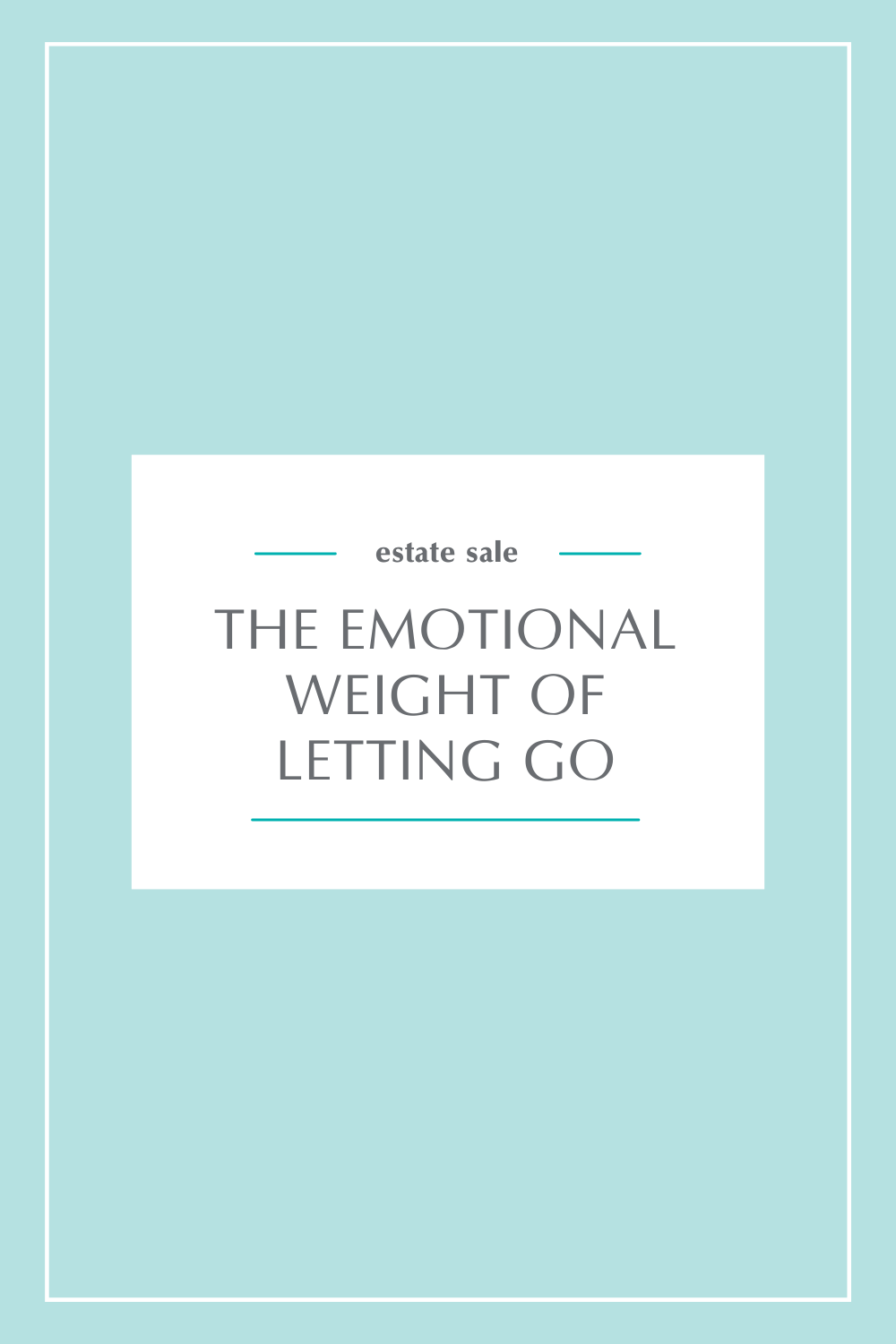The Emotional Weight of Letting Go
Organizing has always been a favorite pastime for me. As a kid, I would organize my toys and my crayons.
As I got older, I would organize my schedule and list of things to do.
Putting things in order is my DNA.
When I headed off to college, I was shocked at how others weren’t as organized, and not nearly as interested in being organized, as I was. I would clean out friend’s cars as we drove to a nearby restaurant asking over and over, “do you want this? is this trash?”.
I threw away week’s old pizza from our college apartment only to be met with angry requests to not touch others things. Apparently pizza was their dinner plans for that night. :P
After a short time in corporate America, I decided to turn this passion into a career. Little did I know what was in store.
For the past 12 years, I have helped client after client learn the art of letting go.
My services were always wrapped up with a bow in a box titled “organizing”, but the focus of each and every project was to unpack the layers and the excuses and the reasons each person held on to things for far longer than they anticipated.
The clothes that no longer fit but would never get donated because “one day I will be that size again”.
The overwhelming weight of outdated technology.
The overflowing closets and drawers because life was too busy to deal with it and being busy was a great excuse that got them off the hook.
So how does this relate to hosting estate sales.
In every way, the process is the exact same for a client yet magnified by a deadline of moving and downsizing.
The era of a life well lived now getting sorted and tagged for a liquidation sale. For some, the experience is overwhelming. For others, it is the breath of fresh air they’ve been looking for.
The emotions come out in many ways, two of which we see the most.
If you can’t get $X for this, then I will just keep it.
On the surface, this seems like a very legitimate request but more times than not the number they want to achieve is tied to something other than the market value of the item.
They may take into consideration how much they paid for it or how many times they’ve moved it or how special it was to a loved one or what they hope it will bring in a secondhand market.
The market is the market and it will tell you what an item is worth.
We often recommend that clients choose to keep items rather than sell them when they bring us these requests.
Do you know how much I paid for this?
I’m always intrigued and interested in where an item was purchased and for how much. In most cases, the retail price of an item purchased in 1982 is irrelevant to the secondhand market value but nonetheless it helps to share the history when reselling.
The job of each liquidator is to find the sweet spot when pricing items. The market is our guide. Sometimes the value can be offensive, in which case we recommend a client keep it rather than sell it.
The emotional weight of letting go of hundreds and thousands of items from a lifetime of loving, curating, and enjoying them can be heavy. We offer private one-on-one organizing sessions in addition to our estate sale services for families who could benefit from a simplicity coach.
Pin For Later




















